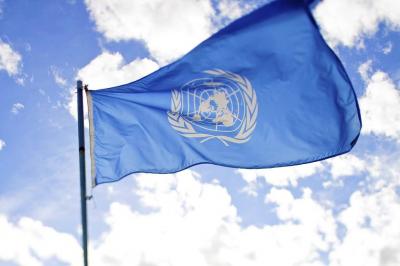Iran's envoy to the International Atomic Energy Agency (IAEA) announced on Monday that the country has informed the UN agency of its decision to extend the monitoring agreement for an additional month. In response, IAEA Director General Rafael Grossi confirmed the extension until June 24, which could significantly impact the ongoing negotiations to revive the nuclear agreement in Vienna.
The "technical bilateral agreement," announced on February 21 for three months, allows international inspectors to continue their fieldwork in Iran's nuclear facilities. However, a subsequent Iranian law has restricted their activities within the country. Tehran stated on Sunday that the agreement had ended and that the IAEA would not be able to access data collected by cameras inside the nuclear facilities as per the temporary bilateral agreement.
Iran's media quoted Kazem Gharib Abadi, Tehran’s ambassador to the UN and its Vienna office, stating that "the IAEA Director General was informed on Monday of Iran's decision to extend the agreement for an additional month." Gharib Abadi added that "the data from the past three months remains with Iran and will not be delivered to the IAEA, and the data from the next month will also stay with Iran only according to the agreement."
Under the agreement, Tehran had committed to providing all camera data and other information if sanctions were lifted by the end of the three-month period. Western diplomats indicated that the failure to extend the IAEA agreement could jeopardize efforts to save the nuclear deal inked in 2015, which seeks to prevent Iran from developing nuclear weapons. Iran and global powers are set to resume discussions in Vienna this week regarding the nuclear agreement that the U.S. aims to re-enter after unilaterally withdrawing in 2018 during former President Donald Trump's administration.
Gharib Abadi stated: "I recommend that they seize this opportunity offered by Iran in good faith and lift all sanctions in a practical and verifiable manner." Washington re-imposed severe sanctions on Iran following its withdrawal from the nuclear deal three years ago, which led Tehran to gradually breach the agreement known as the Joint Comprehensive Plan of Action (JCPOA). The JCPOA aims to prevent Iran from developing nuclear weapons by requiring it to enrich uranium to a purity level no higher than 4% in exchange for the lifting of economic sanctions and allowing the use of its frozen funds abroad.
The head of the Iranian Parliament's National Security Committee, Mojtaba Zonnour, threatened to close the cameras present in Iranian nuclear facilities and delete their content if the negotiations to revive the nuclear agreement fail.




